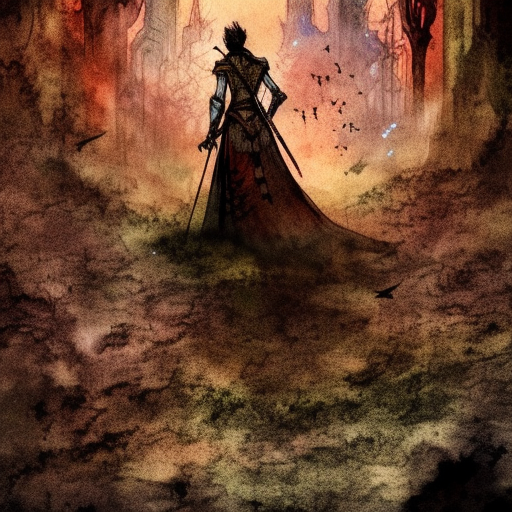The Bronze Bow: A Tale of Love, Redemption, and Freedom
In “The Bronze Bow” by Elizabeth George Speare, a young Jewish boy named Daniel struggles to find his place in the world under Roman rule. Filled with themes of love, redemption, and freedom, this compelling historical fiction novel takes readers on a journey through ancient Israel, exploring the complexities of loyalty, faith, and the power of forgiveness.
Life Under Roman Rule
Set in the time of Jesus, “The Bronze Bow” paints a vivid picture of life under Roman rule in ancient Israel. Daniel, the protagonist, lives in a small village called Ketzah, which is occupied by Roman soldiers. The Romans have imposed strict laws and harsh punishments on the Jewish people, causing tension and resentment to simmer beneath the surface. Daniel, fueled by his desire for revenge against the Romans, joins a group of rebels called the Zealots, who are determined to overthrow their oppressors.
A Journey of Love and Redemption
As Daniel becomes more involved with the Zealots, he encounters a young Greek girl named Thacia, who challenges his beliefs and forces him to question his path of violence and hatred. Through their friendship, Daniel begins to see the power of love and compassion, realizing that revenge will not bring him the peace he seeks. Alongside Thacia, he discovers the teachings of Jesus, whose message of forgiveness and redemption resonates deeply with him.
As Daniel navigates his conflicting loyalties to the Zealots, his family, and his newfound faith, he must confront his own inner demons and make difficult choices that will shape his destiny. Through his journey, Daniel learns the importance of forgiveness, the strength of love, and the transformative power of redemption.
The Power of Forgiveness and Freedom
“The Bronze Bow” explores the theme of forgiveness as a catalyst for personal growth and freedom. Daniel’s journey towards forgiveness is not an easy one, as he grapples with his own anger and the desire for revenge. However, as he witnesses the compassion and forgiveness of Jesus, he begins to understand that true freedom lies in letting go of hatred and embracing love.
The novel also highlights the importance of freedom, both external and internal. While the Jewish people yearn for freedom from Roman oppression, Daniel realizes that true freedom comes from within. He learns that freedom is not merely the absence of physical chains but also the liberation of the soul from bitterness and resentment.
Key Takeaways:
- Love and forgiveness have the power to heal wounds and bring about personal transformation.
- Freedom is not solely external but also internal, requiring the liberation of the soul from hatred and resentment.
- Violence and revenge only perpetuate a cycle of pain and suffering.
- Questioning one’s beliefs and being open to new perspectives can lead to personal growth and understanding.
“I have been given a second chance. I have been given a chance to grow up again. To be a man. To be a man who can love.” – Daniel
In “The Bronze Bow,” Elizabeth George Speare weaves a captivating tale of love, redemption, and freedom set against the backdrop of ancient Israel. Through Daniel’s journey, readers are reminded of the transformative power of forgiveness, the importance of inner freedom, and the strength that comes from embracing love.












